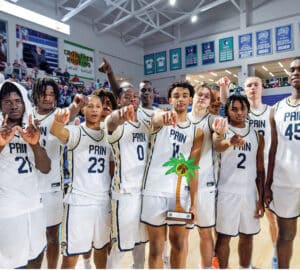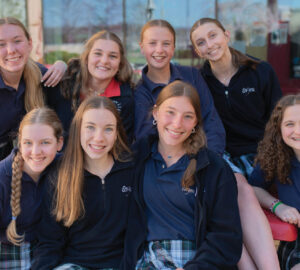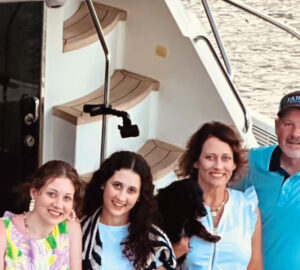When Nidhi Bhaskar sees a problem, she wants to be part of the solution. After witnessing firsthand the infrastructure problems in several developing countries, the MICDS junior took action to get other teens involved. She founded a nonprofit, ProjectNBYOUTH, last summer as her starting point for global change.
Her mom’s career as a pediatrician has influenced the 16-year-old in her desire to help people, but she says her interests in global health and community awareness stem more from visits to places like India and Peru. “In India, I’ve volunteered at clinics, orphanages and a school, which was very eye opening,” Bhaskar says. “It allowed me to see how people truly live over there.” She created ProjectNBYOUTH to initiate change. (‘NB,’ which are coincidentally her initials, stands for ‘New Boundaries.’) She explains on her website, projectnbyouth.com, that as urbanization expands, improper waste disposal and poor sanitation are causing health and safety problems.
“There is such a complacency among residents toward the crisis, so that inspired me to target youth to find a solution,” she says. “They need to be trained early on the three ‘R’s’ of waste reduction—reduce, reuse and recycle—so they can think differently and combat these problems. Young people have so much creativity and energy. If they can be made aware of proper practices of sustainability, they can bring about changes in schools and communities.”
To support this belief, ProjectNBYOUTH invites students in Bengaluru, India, in grades eight through 10 to team up in small groups to study topics related to the effects of improper waste management on the environment. “Last year was the first competition, and I provided students with a formula on which they would be judged,” Bhaskar explains. “They had to write a short essay about their topic; implement a small project in their local community to raise awareness and initiate change, such as forming an environmental club at school, distributing brochures to households, or complaining to a municipality about a dirty street and organizing a clean up; and provide a short write-up of their project along with action photos.”
Bhaskar admits initially reaching out to students was a tricky process. “It was very hard to penetrate the infrastructure over in India,” she notes. “My entire summer was consumed with writing emails and making hundreds of phone calls to schools.” Even though she was not always successful, her persistence and organization paid off, and 20 teams were part of the inaugural competition. “One of my favorites was our second-place winners, who submitted an amazing, unfiltered documentary on Bengaluru, completely exposing the level to which the trash crisis has escalated,” she says. The entire school watched it at an assembly, and several students were interviewed afterward on their reaction. “Many had no idea how bad the problem was,” Bhaskar says.
She organized an awards ceremony at the school in India with the highest number of participants, and a member of the state legislative assembly attended. “One of my mentors, Dr. Chaya Gopalan of Southern Illinois University, Edwardsville, was in India for personal reasons, so she was there as well.” Other mentors involved with the project are Dr. Jacaranda van Rheenen of Washington University, Dr. Tanya Roth of MICDS and Dr. Diana Graizbord of Brown University.
Bhaskar hopes to increase student participation in Bengaluru and eventually spread the program to other cities in India and beyond. “I want to create a domino effect of constructive thinking,” she says. She has plans to start a similar initiative in St. Louis. To further her efforts, Bhaskar was just awarded a grant from Youth Service America as one of its 12 Everyday Young Hero recipients of 2016.
Her other local efforts include forming a Teen CERT program at school, which provides first responder training and certification to teens, and forming Project Global Perspectives at MICDS with a friend, to lead relief efforts and raise awareness about environmental problems around the world. The group has held bake sales to raise money for earthquake victims in Nepal and for local flooding victims. “We’re also hoping to organize a food packaging project here at school later this year to supply meals to developing countries,” she notes.
Bhaskar does not plan to slow down any time soon. The junior wants to study medicine and public health in college to help continue her efforts. “My ultimate dream is to become director of the World Health Organization someday, but I’ll start with a medical degree!”








